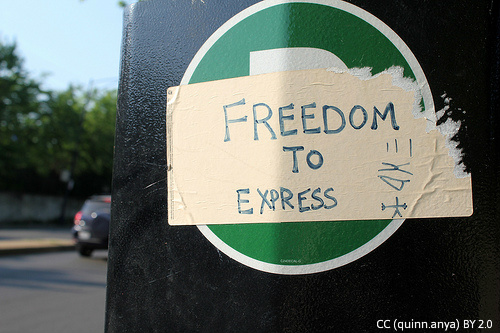A Key Tool in the Struggle for a Free Internet
by Digital Rights LAC on May 5, 2014
The Special Rapporteur for Freedom of Expression of the Inter-American Commission on Human Rights (IACHR) has published the report Freedom of Expression and the Internet. This report probably constitutes the main legal and constitutional tool to advance the struggle for a free and open Internet in the Americas.
By Ramiro Álvarez Ugarte*
The report is neither an international treaty nor directly binding on States. However, it is an official interpretation of the American Convention on Human Rights issued by one of the system’s bodies. What it does is extend to the digital world the generous standards on freedom of expression developed by the Inter-American system throughout decades.
The report is extensive and comprehensive and includes standards and principles of human rights and good practices. It draws on what exists and points to possible and, on occasion, necessary directions to protect the right to freedom of expression on the Internet. It covers issues such as net neutrality, access, privacy, cybersecurity and responsibility of intermediaries. And in each of those issues, it explains what the system’s current human rights standards have to say.
These kinds of IACHR reports have historically been useful in the defense of human rights. In several countries, international treaties are directly applicable and, in many cases, have constitutional status. Some even argue -at a constitutional, statutory or case law level- that the interpretations issued by international treaty-making bodies require attention. That is why this report is relevant: it is a kind of soft law that has proven very effective in the past.
Civil society organizations need to bear in mind what it is we do to be able to fully comprehend the importance of this report. In fact, activists interested in making the Internet a free and open space generally act outside the formal structures of the State. We have no political affiliation nor run for elections. Our political action takes a different form: we seek to persuade our public officials that the principles we hold are true and that they, in turn, must lead judicial decisions as well as political and regulatory options that take these issues seriously.
This persuasion policy is how we have been making our rights-based claims for decades: movements for civil rights, indigenous rights, women’s rights and LGBTI rights are proof of that. We have limited resources and combine them in different ways: while some are engaged in organizing the public and launching public communication campaigns aimed at our representatives, others prefer direct lobbying; while the rest of us use the courts as a platform for submitting our demands to the State. The rights invoked in our agendas are one of the most valuable resources we have. And in democratic societies they tend to be powerful arguments in our task of persuasion. The Commission’s report significantly strengthens this resource for at least two reasons.
First, it allows us to unify the discussion at the regional level. Principles that were once scattered are now contained in a single document that articulates them in light of Inter-American standards. Issues that once posed questions or dissimilar criteria are clearer now. The report is an essential first step in generating a genuine regional discussion about the future of Internet;one that could -and should- have an impact on the broader discussion that is currently taking place in global forums.
Second, it opens an additional advocacy space. The Commission usually follows-up on its own reports, which means that it and –ultimately– the Inter-American Court will constitute arenas in which to continue to advance the Internet freedom agenda. The Inter-American system creates a great incentive for the coordination of tasks at the regional level: it invites us to cross borders and take a broad perspective that includes other countries.
The Inter-American system has been a space for strengthening the struggle for human rights, especially in Latin America. We celebrate the fact that the struggle for a free and open Internet has been welcomed into that space.
* Ramiro Álvarez Ugarte é Diretor das Áreas de Acesso à Informação e Privacidade no Asociación por los Derechos Civiles (ADC).
** Translated by Paula Arturo






